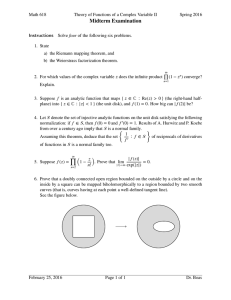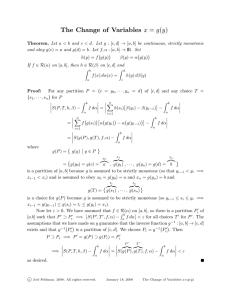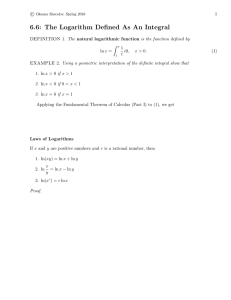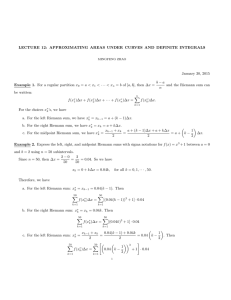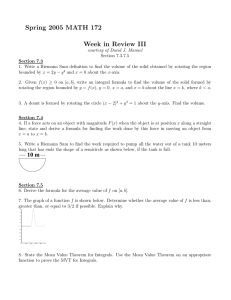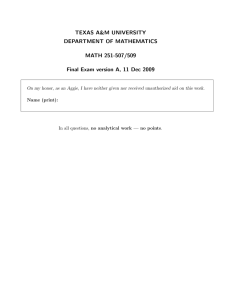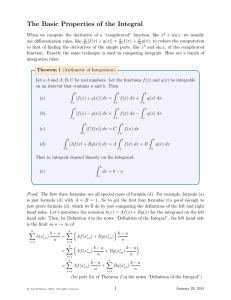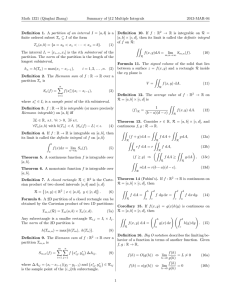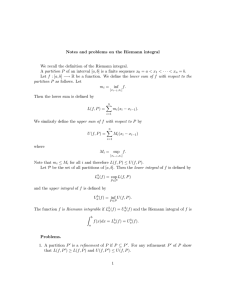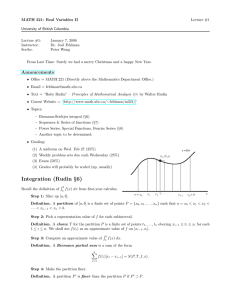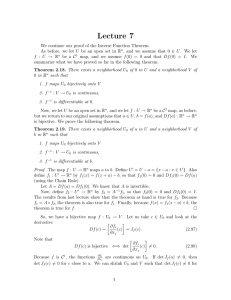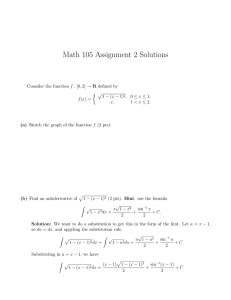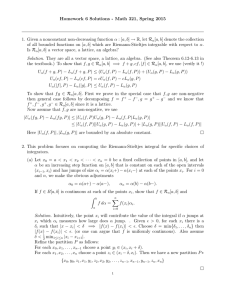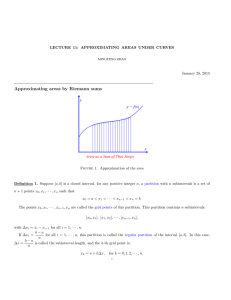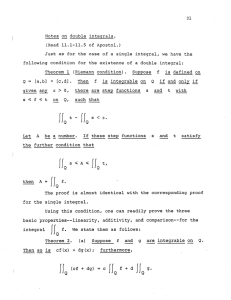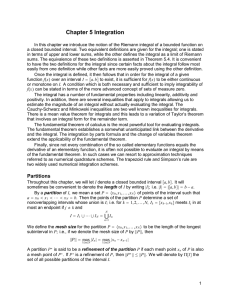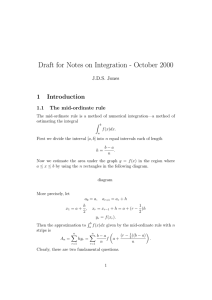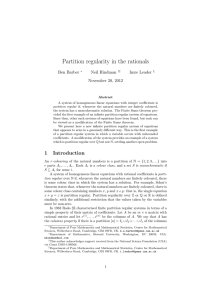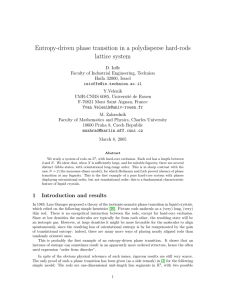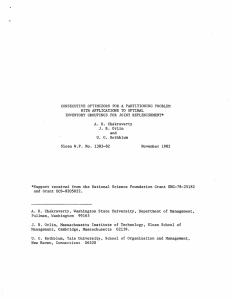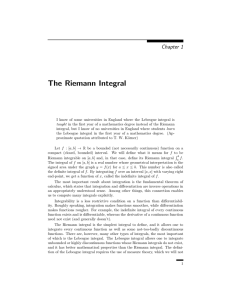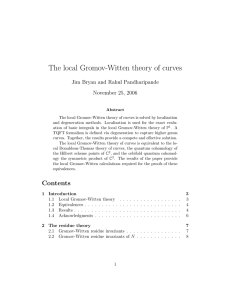Reduction to the Riemann Integral
advertisement
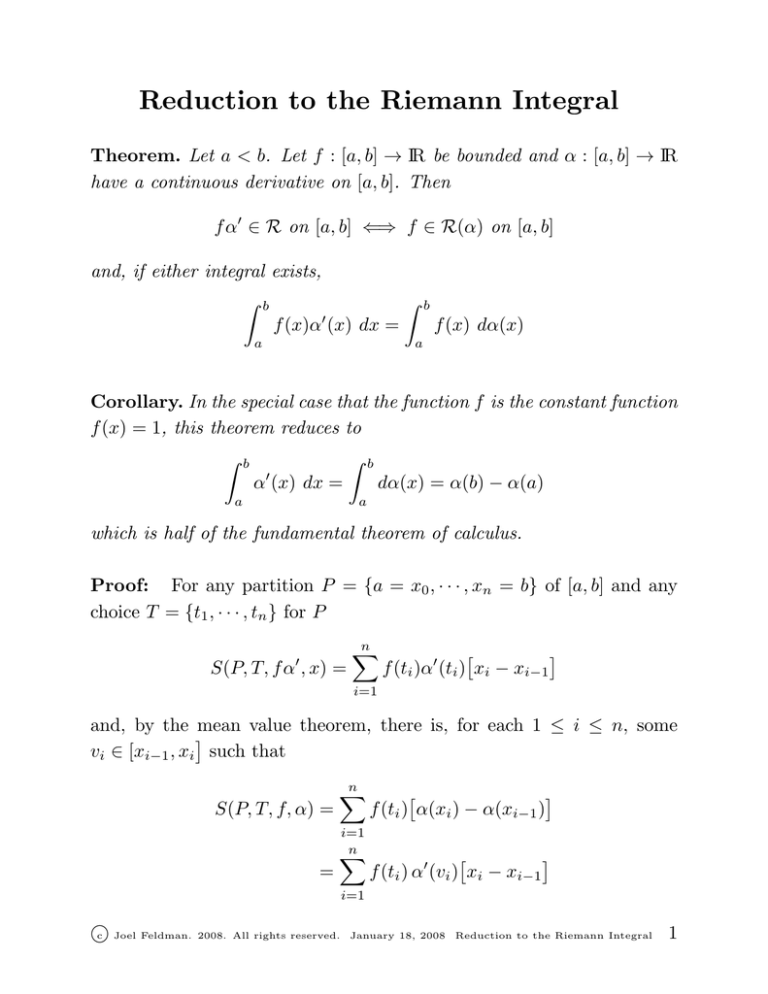
Reduction to the Riemann Integral
Theorem. Let a < b. Let f : [a, b] → IR be bounded and α : [a, b] → IR
have a continuous derivative on [a, b]. Then
f α′ ∈ R on [a, b] ⇐⇒ f ∈ R(α) on [a, b]
and, if either integral exists,
Z
b
′
f (x)α (x) dx =
Z
b
f (x) dα(x)
a
a
Corollary. In the special case that the function f is the constant function
f (x) = 1, this theorem reduces to
Z
b
′
α (x) dx =
Z
b
dα(x) = α(b) − α(a)
a
a
which is half of the fundamental theorem of calculus.
Proof: For any partition P = {a = x0 , · · · , xn = b} of [a, b] and any
choice T = {t1 , · · · , tn } for P
′
S(P, T, f α , x) =
n
X
i=1
f (ti )α′ (ti ) xi − xi−1
and, by the mean value theorem, there is, for each 1 ≤ i ≤ n, some
vi ∈ [xi−1 , xi such that
S(P, T, f, α) =
=
c Joel Feldman.
n
X
f (ti ) α(xi ) − α(xi−1 )
i=1
f (ti ) α′ (vi ) xi − xi−1
i=1
n
X
2008. All rights reserved.
January 18, 2008
Reduction to the Riemann Integral
1
So
n
X
′
f (ti ) α′ (ti ) − α′ (vi ) xi − xi−1
S(P, T, f α , x) − S(P, T, f, α) ≤
i=1
Now let ε > 0. Since f is assumed to be bounded, there is an M > 0
such that |f (t)| ≤ M for all a ≤ t ≤ b. Since α′ is assumed to exist and
be continuous on [a, b], it is uniformly continuous on [a, b]. Hence, there
ε
is a δ > 0 such that α′ (t) − α′ (v) ≤ 2M [b−a]
for all t, v ∈ [a, b] with
|t − v| < δ. In particular, if kP k < δ, then |ti − vi | < δ and hence
′
ε
α (ti ) − α′ (vi ) ≤
2M [b−a] for all 1 ≤ i ≤ n. So, if kP k < δ, we have
n
X
′
M
S(P, T, f α , x) − S(P, T, f, α) ≤
ε
2M [b−a]
i=1
=
ε
2[b−a]
n
X
i=1
xi − xi−1
ε
2
xi − xi−1 =
In the event that f ∈ R(α) on [a, b], there
is a partition Pε′ such
Rb
that P ⊃ Pε′ =⇒ S(P, T, f, α) − a f dα < 2ε for all choices T for
P . Choose a partition Pε for [a, b] by adding sufficiently many points
to Pε′ that kPε k < δ. Then, by the triangle inequality, for any partition
P ⊃ Pε and any choice T for P ,
Z b
S(P, T, f α′ , x) −
f
dα
a
Z
≤ S(P, T, f α′ , x) − S(P, T, f, α) + S(P, T, f, α) −
a
<ε
b
f dα
as desired. The argument in the case that we assume f α′ ∈ R on [a, b]
is identical.
c Joel Feldman.
2008. All rights reserved.
January 18, 2008
Reduction to the Riemann Integral
2
